| | Venice Biennale, South African literature, Lagos’ new museum, French-African education, Tanzanian fo͏ ͏ ͏ ͏ ͏ ͏ |
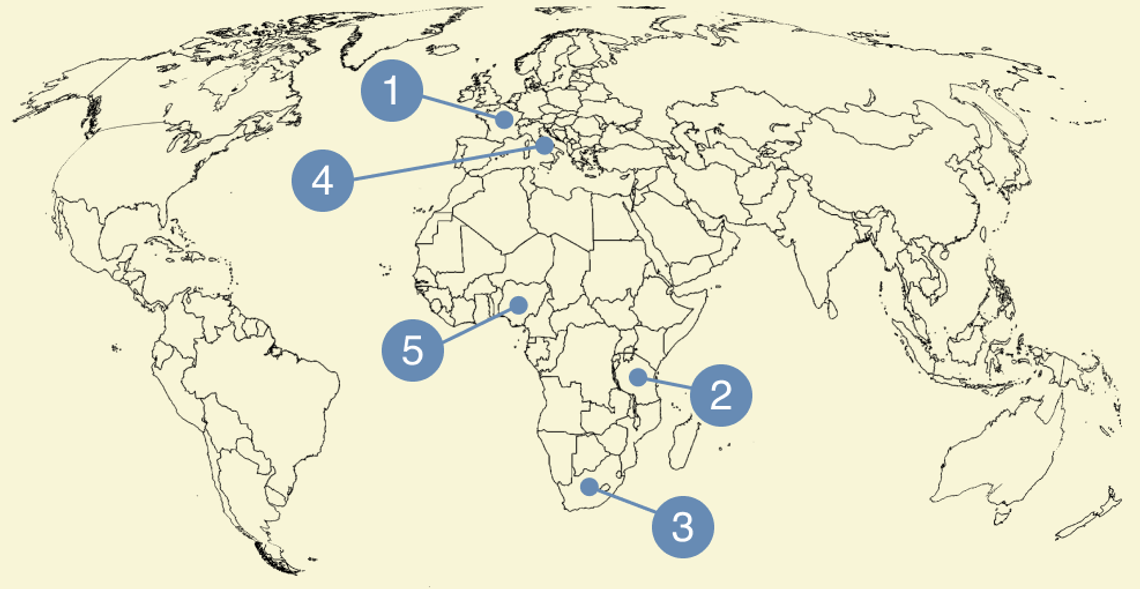 - Africans in Paris
- Spare the rod
- Post-apartheid literature
- Debutantes in Venice
- A Yoruba museum
Also, Tanzania’s two most popular football teams. |
|
 Hello! Welcome to Semafor Africa. We often try to avoid writing about the press here on the Africa team because we like to leave it to the experts such as our colleagues Ben and Max over on Semafor Media. But World Press Freedom Day yesterday was a reminder of the importance of recognizing the efforts and sacrifices of hundreds, if not thousands, of journalists around the continent who are facing really tough circumstances. Overall, Africa remains a tough place to be a journalist, with Mauritania (33rd), Namibia (34th), Seychelles (37th), and South Africa (38th) the continent’s only nations in the top 40, according to the World Press Freedom index produced by the nonprofit, Reporters Without Borders. But even those countries can’t take things for granted given what’s happening with some of their neighbors. In a separate report, Amnesty International explained that authorities across east and southern Africa have continued to “impose severe restrictions” on media freedom over the past year in countries like Zimbabwe, South Sudan and DR Congo. “Speaking out against or scrutinizing government policies, actions or inaction, or publicly sharing information deemed damaging to the government carried the risk of arrest, arbitrary detention, or death,” said Tigere Chagutah, Amnesty International’s regional director for East and Southern Africa. 🟡 If you’re going to be at the US-Africa Business Summit in Dallas this week and would like to meet up, please reply to this email. |
|
African students dominate in France |
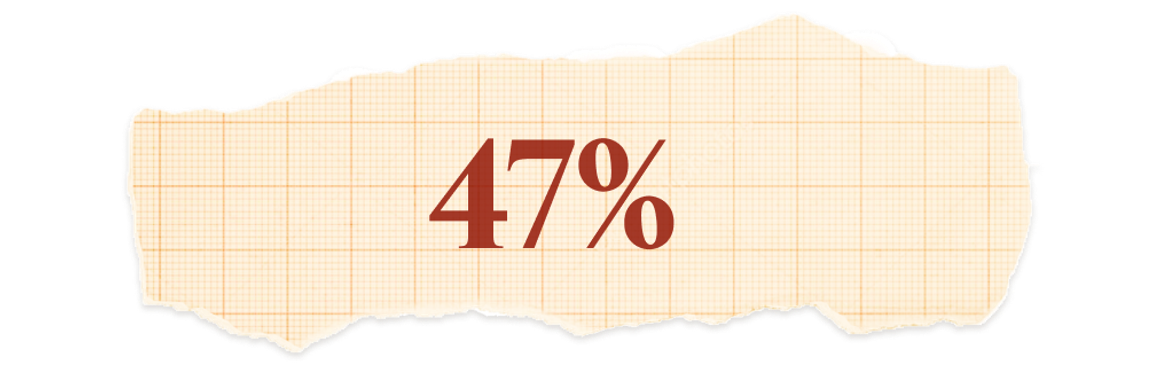 The share of over 400,000 foreign students in France who were African in the 2022/23 school year, according to the latest report by Campus France. France has long been a popular study destination for African students for several reasons including a relative ease of getting study visas, quality-price ratio of universities compared to other countries — such as the United States and the United Kingdom — and a demographic boom in sub-Saharan Africa. |
|
Do corporal punishment bans work? |
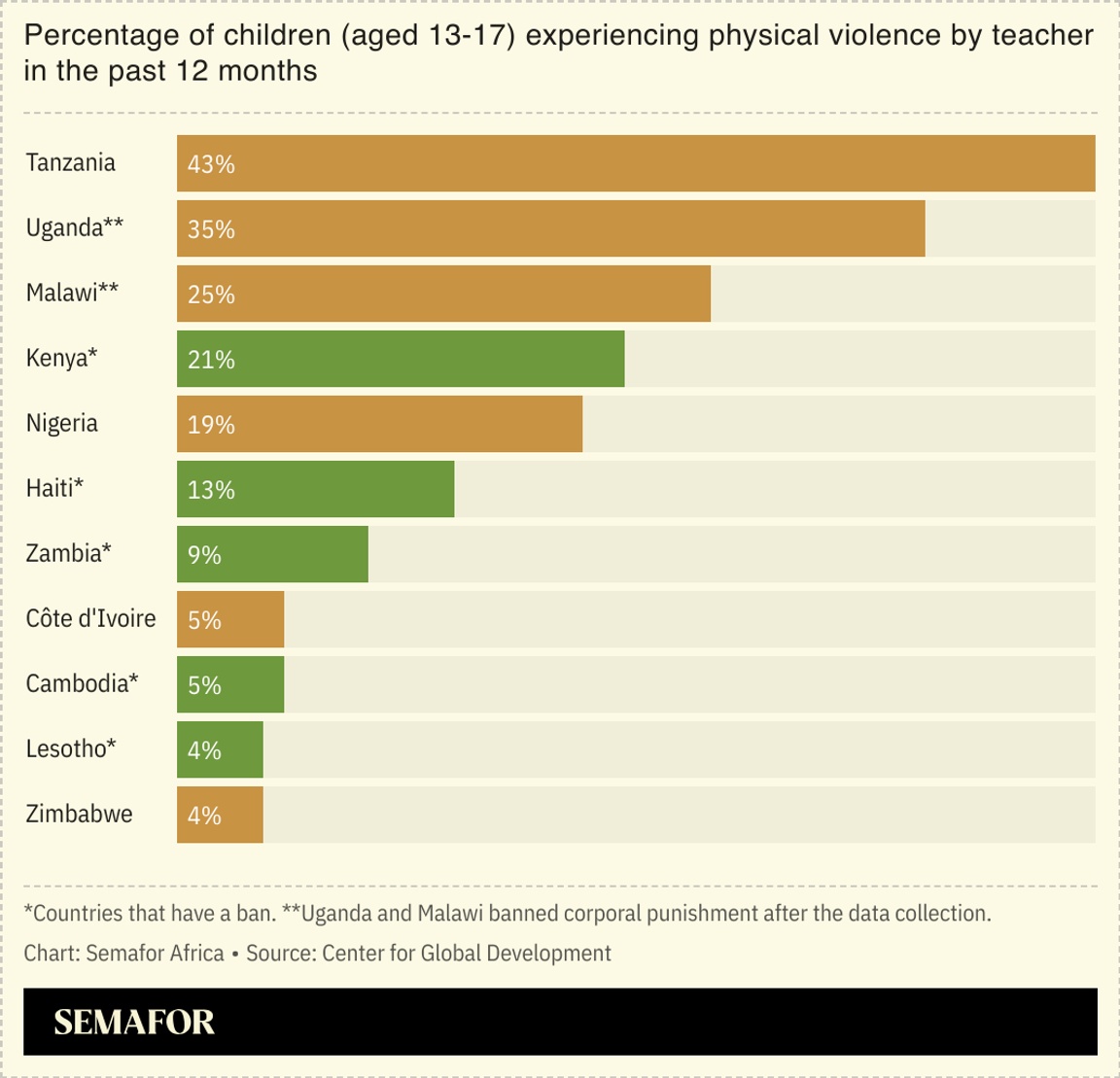 While there are 65 countries which have a full ban on corporal punishment in schools and homes, it remains legal in schools in more than 60 countries among those surveyed in a study by the Center for Global Development. The Washington-based think tank examined how enforcing legislation that prohibits corporal punishment reflects the lived experience of children. It found that bans alone are not sufficient and that government and citizen alignment on corporal punishment were a good precondition for implementing bans. The data appeared to show that children are less likely to have experienced corporal punishment by teachers in the last year in countries with corporal punishment bans in schools, compared to those without bans. Many of those countries without bans were in Africa at the time of the data collection. CGD found that in countries without bans, there was on average a higher percentage of parents who approved and used corporal punishment, with parents in sub-Saharan African countries exhibiting significantly higher agreement and prevalence rates compared to other regions. |
|
How to write for a post-apartheid South Africa |
| | 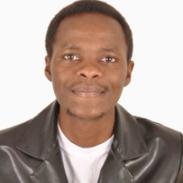 | Muchira Gachenge |
| |
Niq Mhlongo is an award-winning South African novelist, travel journalist, and editor. He has published three short story collections, and five novels. He has also won several literary prizes in South Africa for his work. Mhlongo is based in Berlin. His latest novel, This City is Mine, will be released officially on May 10. 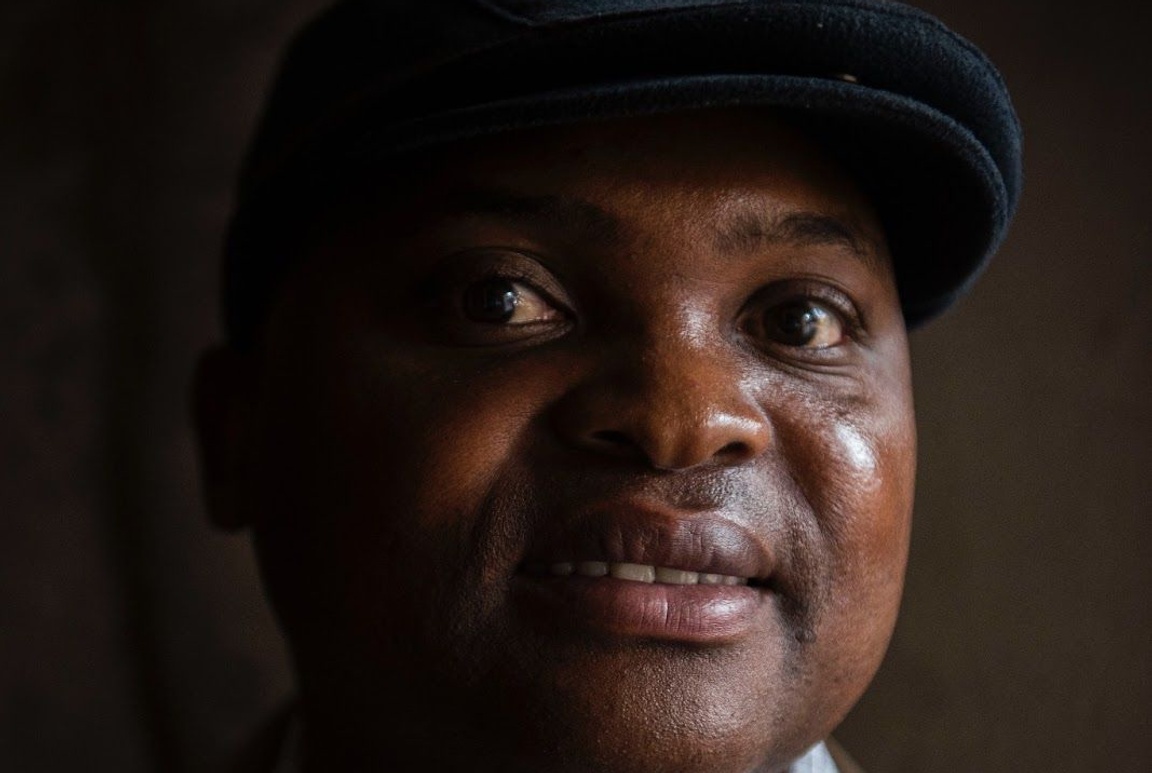 Niq Mhlongo/ Alet Pretorius Niq Mhlongo/ Alet Pretorius💡What is the subject of your new novel? The City is Mine is set exclusively in Johannesburg, the city where I grew up. It explores the neglect of the ordinary city dweller, and how, in turn, the ruling class has neglected the city. Simply, what it feels to be homeless and neglected at home. But also, it interrogates the city’s descent into ruins and a shadow of its former glory. 💡How has South Africa’s literary scene changed post-apartheid? At independence, three decades ago, we had very few Black authors who were telling the Black story. With the rise of independent publishers, and Black-owned bookstores, we have writers selling over 20,000 books annually. Some are writing in local languages for a centrally African audience, something that was unheard of before. 💡 How is the political climate leading up to the election later this month? South Africa has a multi-democratic system, and that is true with the fact that over 30 political parties have registered candidates to stand for elections. But I must admit that different people are looking at candidates who will address their most pressing needs. These include the power crisis, the border and migrant issue, but more importantly, the endemic corruption problem. Personally, I’m looking at the candidates who also will revive the cities, create jobs, and invest more in education and art sectors. 💡 Which dish do you go to when nostalgia for home hits? It has to be pap (a staple African food made from maize-meal) and vegetables. My other favorite is the South African braai (barbecued meat). The latter because I get a lot of my stories from where we eat it as a community. 💡 Which song(s) are you currently playing? Tyla’s “Water”, for which she was awarded a Grammy Award. But depending on what I am writing, I could be listening to amapiano songs or kwaito music. |
|
 Benin’s pavilion at the 2024 Venice Biennale; Stefano Mazzola/Getty Images Benin’s pavilion at the 2024 Venice Biennale; Stefano Mazzola/Getty ImagesWhen the 2024 Venice Biennale opened to the public last month, it announced its strongest ever lineup of African art. Presenting among the national pavilions are 13 African countries (up from nine in 2022). They include debut pavilions from Benin, Ethiopia, Senegal, and Tanzania. They joined returning pavilions from Cameroon, Côte d’Ivoire, DR Congo, Egypt, Kenya, Nigeria, South Africa, Uganda, and Zimbabwe. Benin’s debut has captured some attention because it literally involved the country’s president Patrice Talon picking up the phone and asking Nigerian curator Azu Nwagbogu to help organize the country’s debut presentation. Venice Biennale, which opened on April 20 and will run till Nov. 20, is one of the art world’s most important dates and takes place across the Italian city. Only two African countries, Egypt and South Africa, have permanent pavilions in Venice, dating back to the 1950s. For most other African countries, especially those going through a tough macroeconomic period, getting government backing for art can be difficult. This is why private backers have helped out (though this is not unique to African countries). Even then, they will not be treating it as “some kind of Mecca,” as Nwagbogu told Artnet. “Europe is an important place to have a conversation, but it is not the center of the world,” he is reported to have said. 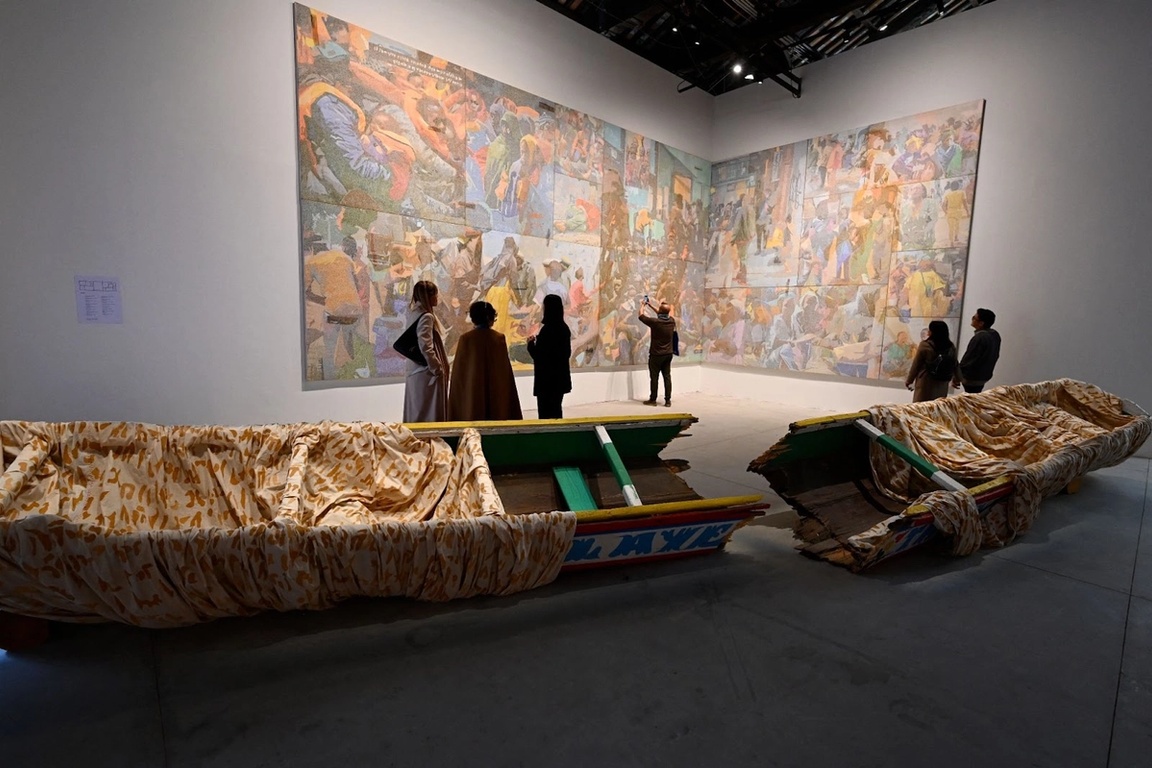 Installation by artist Alioune Diagne in Senegal's pavilion; Gabriel Bouys/AFP via Getty Images Installation by artist Alioune Diagne in Senegal's pavilion; Gabriel Bouys/AFP via Getty ImagesThe New York Times has drawn extra attention to Nigeria’s second biennale presentation (after a 2017 debut), with an article looking at the eight artists spanning drawing, painting, video, photography, AI, and augmented reality. But it’s also worth remembering that Nigeria and Africa have had another connection with the Venice Biennale through Okwui Enwezor, the late art critic who was appointed curator of the 2015 biennale which made him the first African-born curator in its 120-year history. — Yinka |
|
Lagos’ latest museum opens later this year |
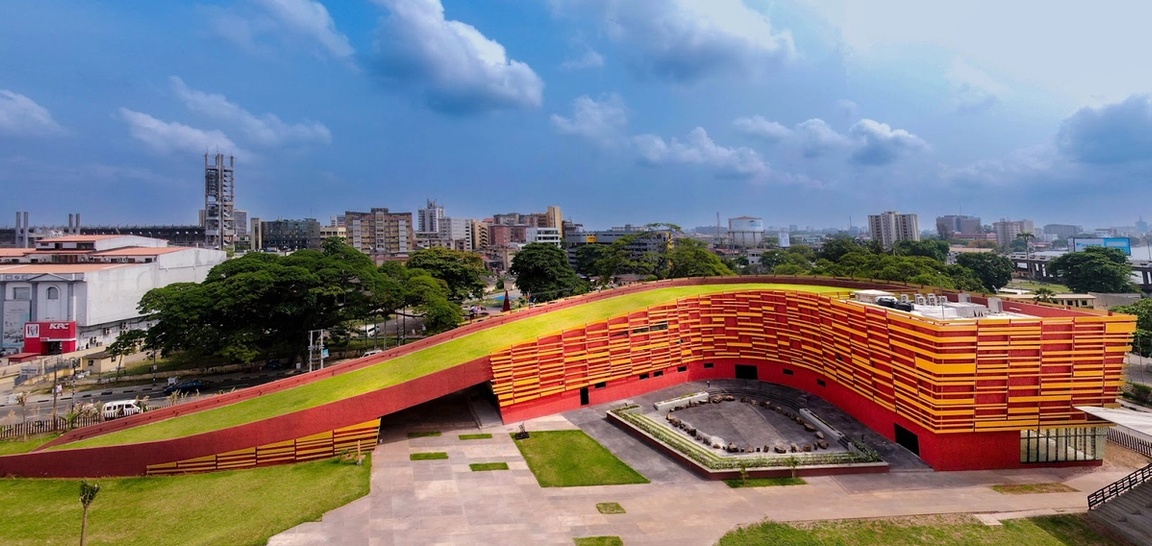 Ademola Olaniran and Jide Atobatele Ademola Olaniran and Jide AtobateleThe John Randle Center for Yoruba Culture and History in Lagos will open to the public later this year, giving the city a museum that can trace its origins back a century. Located in Onikan, a neighborhood of the city that features other cultural buildings and a mini sports stadium, the center exhibits Yoruba influences on Lagos’ identity. It also serves as another mark in the movement across West Africa for architecture that reflects local history and culture. The center’s exterior uses bright colors, meant to “highlight the vibrancy and the dynamism of the Yoruba culture,” according to its lead architect Seun Oduwole. He told the UK’s Guardian newspaper that the center was built not just as a museum but “a theatre of living memory.” Beyond its 1,000 square meters of exhibition space housing icons and memorabilia of Yoruba religion, the museum also features a public swimming pool. The pool was rebuilt as an homage to a previous pool, built in the 1920s by John Randle, a Sierra Leone-born Lagos-based doctor. Randle’s pool is thought to be the first open to Black Africans in Nigeria, since British colonists at the time barred locals from using theirs. 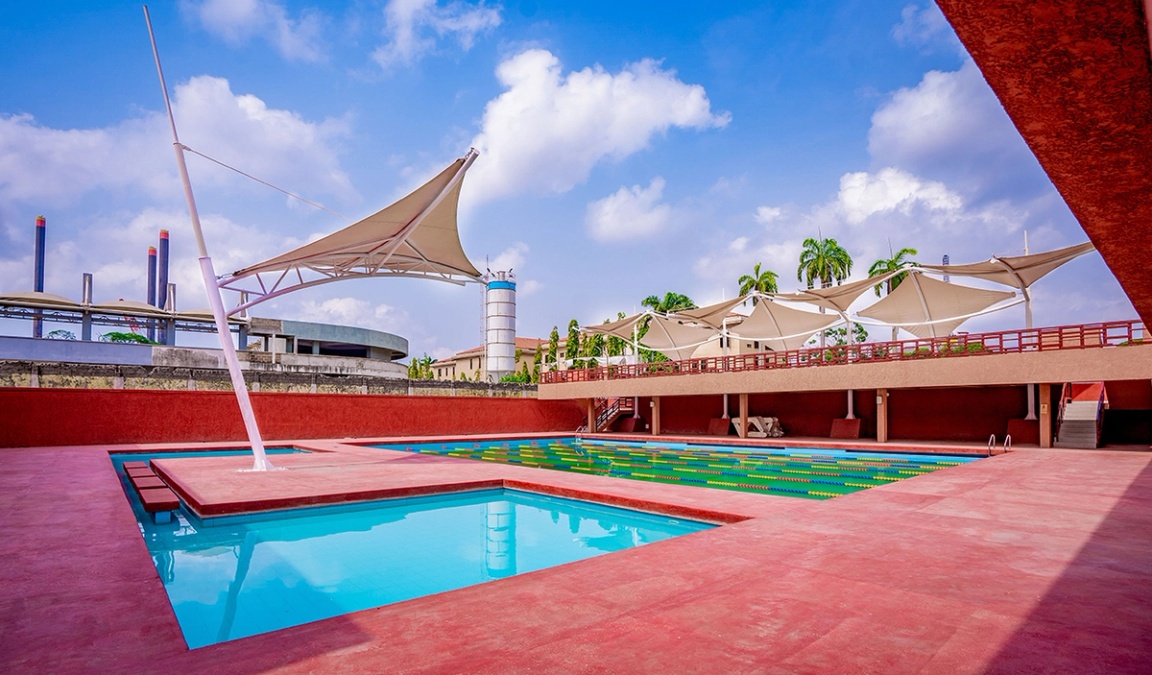 Ademola Olaniran and Jide Atobatele Ademola Olaniran and Jide AtobateleThe center adds to the increasing number of museums in Nigeria in recent years, including the Yemisi Shyllon Museum of Art, already open in Lagos, and the planned Edo Museum of West African Art, which will house hundreds of returned Benin artifacts, in the southern city of Benin. — Alexander Onukwue |
|
 Come and join us on the Semafor Africa WhatsApp channel! 1️⃣ Click here to join. 2️⃣ This is important, click on the 🔕 icon in the top right corner of your screen to unmute notifications. We’d love to hear from readers on what you’d like to see on WhatsApp that’d be better or different from our newsletters. Also, listen to our Song of the Weekend! |
|
 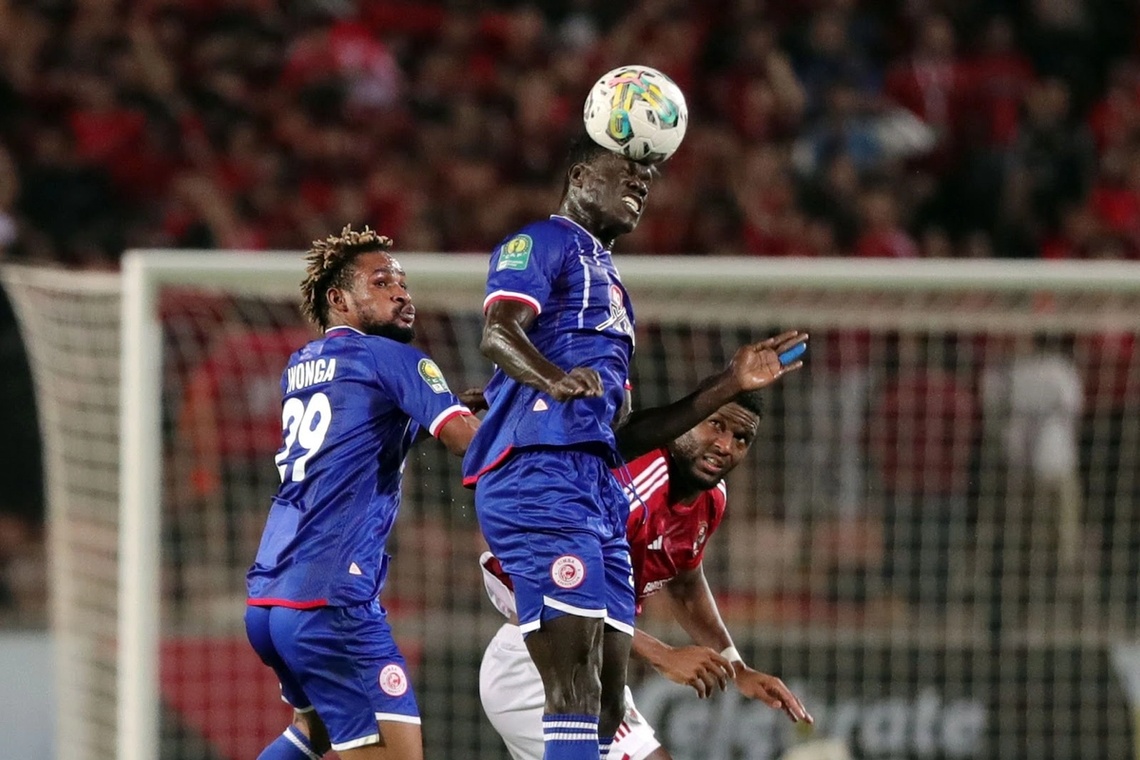 Ahmed Gomaa/Xinhua via Getty Image Ahmed Gomaa/Xinhua via Getty Image🇹🇿 Tanzania’s Yanga and Simba sports clubs are reemerging to be among the biggest football teams on the continent, according to an essay in Africa is a Country. The clubs were struggling five years ago but have transformed into becoming the nation’s favorites. The essay notes that it was evident the quality of the teams Yanga and Simba had dramatically improved with an improvement in the standard of refereeing, quality of the pitches and attendance at stadiums. 🇨🇩 Indigenous communities in DR Congo continue to grapple with exploitation and forms of slavery, nearly 150 years since Belgium’s King Leopold was recognized by Europeans as the sole owner of the Congo Free State in 1884, argues Soleil-Chandni Mousseau. In an essay for African Arguments, Mousseau notes that the displacement of the Lokutu, Yaligimba, and Boteka communities to create large-scale oil palm plantations has continued the colonial legacy of exploitation. 🇸🇩 The ongoing war in Sudan emanates from a long-standing identity crisis rooted in the country’s diversity. With a population of 49 million, and comprising 19 major ethnic groups and about 597 ethnic subgroups, Sudan sees an unfair distribution of wealth and resources, Hamdy A. Hassan writes in The Conversation. The professor argues that achieving peace in the country requires a focus on the concerns of marginalized populations. 🌍 Somaliland’s stability and democracy hinges on successfully resolving recent political crises and disputes, argues Moustafa Ahmad for The Elephant. Ahead of the forthcoming party and presidential elections, Ahmad writes that “political actors — particularly the government and political parties — should work together in implementing the technical steps required by the political process.” 🗓️ Week Ahead May 6 — Chad will hold the first round of its presidential election. The interim president, Mahamat Idris Deby, who seized power three years ago following the death of his father, is widely expected to win. May 6-9 — The Corporate Council on Africa will host the 16th US-Africa Business Summit in Dallas, Texas, bringing together more than 1,500 US and African public and private sector executives including heads of state, international investors, and government officials. May 7-9 — The Africa Fertilizer and Soil Health Summit will be held in Nairobi to discuss a widespread decline in the soil quality of farmland. May 8-14 — The 31st edition of the New York African Film Festival will feature over 50 films from across the continent. May 9 — The International Monetary Fund will visit Kenya for a review meant to unlock a $1 billion tranche to support the East African nation’s economic recovery efforts. May 9 — Kenya’s leading telecoms operator Safaricom will release its full year earnings results. May 13-16 — Africa’s Travel Indaba, one of the largest global tourism trade shows, will bring exhibitors from around the continent to Durban, South Africa. |
|
 If you’re enjoying the Semafor Africa newsletter and finding it useful, please share with your family, and friends. We’d love to have them aboard, too. Let’s make sure this email doesn’t end up in your junk folder by adding africa@semafor.com to your contacts. In Gmail you should drag this newsletter over to your ‘Primary’ tab. You can reply to this email and send us your news tips, gossip, street food recommendations and good vibes. — Yinka, Alexis Akwagyiram, Alexander Onukwue, Martin Siele, and Muchira Gachenge |
|
| |